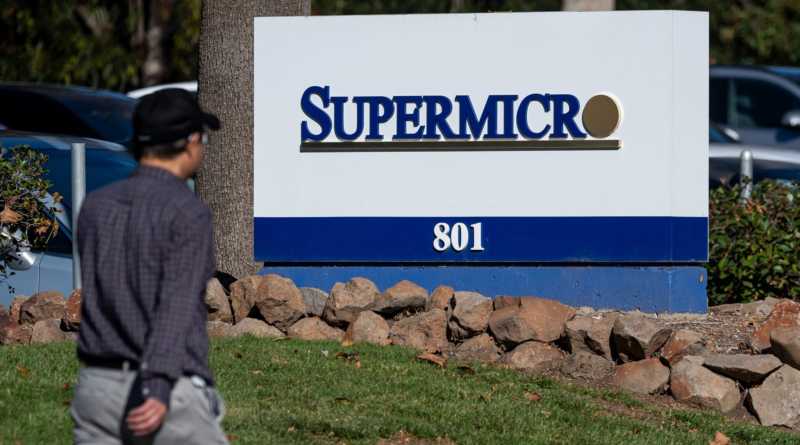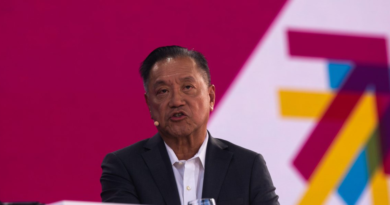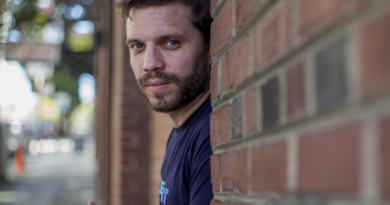Super Micro needs a new CFO after an accounting scandal. Who should apply?
Good morning. Super Micro Computer, which makes high-powered AI servers, wants to turn the page on a recent controversy related to its financial practices. The scandal will result in the company parting ways with its current CFO, David Weigand, as part of its “ambition for future growth.”
The Fortune 500 company announced on Monday that an independent special committee formed by Super Micro’s board of directors has completed its review of financial practices. There was “no evidence of fraud or misconduct on the part of management or the board of directors,” according to the company. The evidence did not raise any “substantial concerns” about the integrity of the company’s senior management or audit committee or “their commitment to ensuring that the company’s financial statements are materially accurate.” And a restatement of reported financials is not expected.
Super Micro formed the committee last summer to conduct an investigation after its auditor EY flagged concerns about the company’s accounting practices and internal control over financial reporting to the board’s audit committee in July. EY resigned as the company’s auditor in October. BDO is the company’s independent auditor as of November. Super Micro is working on filing audited financials for its fiscal year that ended June 30 and for the first quarter of fiscal 2025.
In August, short-seller Hindenburg Research claimed Super Micro continued to engage in questionable accounting practices. Subsequently, the Department of Justice opened a probe into the company in September.
Super Micro was delisted by Nasdaq in 2018 for not meeting deadlines to file its financial reports. The company got approval to rejoin in 2020 after settling with the Securities & Exchange Commission. During that time, the company parted ways with its CFO, Howard Hideshima, who was alleged by regulators to have engaged in improper accounting, Fortune reported. In the years since being listed again, Super Micro has seen a 3,000% run-up in its stock price and does business with Nvidia, Fortune’s Amanda Gerut and Sharon Goldman recently reported.
Searching for a CFO
Although Super Micro said in Monday’s announcement that the committee did not find fraudulent actions, they did suggest finding “a new CFO with extensive experience working as a senior finance professional at a large public company.” This would support the “company’s growth over the past two years in helping to lead the AI revolution,” according to the announcement.
Weigand, finance chief at Super Micro since 2021, will remain in the role until the board selects a new CFO. Before becoming CFO, he was chief compliance officer at the company. He previously was VP at Hewlett Packard Enterprise, VP of Tax at Silicon Graphics International, Inc., and CFO of Renesas Electronics America, a semiconductor company.
To enhance governance, the committee said there should not be a combined CFO/chief compliance officer (CCO) function, so Super Micro is now also searching for a CCO. The company is seeking a general counsel as well. And Kenneth Cheung, currently VP of finance and corporate controller, has been appointed chief accounting officer.
I asked Shawn Cole, president and founding partner of executive search firm Cowen Partners for some insight on what type of CFO would best serve Super Micro.
“At this stage, a reporting-focused CFO is crucial to restoring internal controls, ensuring regulatory alignment, and strengthening relationships with auditors and stakeholders,” Cole told me. And “ideally someone with a background as a former Big 4 auditor and CPA,” he said. This combination of experience would bring deep expertise in accounting, regulatory compliance, and financial governance, paired with a track record of working as a CFO of a large public company in a similar space, he explained.
Companies like Super Micro often benefit from creating hyper-focused C-suite roles to address specific needs, Cole said. “For instance, appointing a chief accounting officer earlier could have provided the necessary expertise to maintain tighter financial controls and oversight,” he said.
Cole added: Super Micro is an example of “a fast-growing company that outgrew its CFO and team, highlighting the challenges that come with scaling operations and governance of a public company.”
Sheryl Estrada
sheryl.estrada@fortune.com
The following sections of CFO Daily were curated by Greg McKenna.
Leaderboard
Celeste Mellet was appointed CFO of health insurance giant Humana (NYSE: HUM), effective Jan. 11. She will succeed Susan Diamond, who is stepping down after 18 years at the company, including the last three as finance chief, and will serve in an advisory role through 2025. Mellet arrives from Global Infrastructure Partners, a fund recently acquired by BlackRock, where she is CFO. She previously held the same role at Fannie Mae and then investment bank Evercore after starting her career at Morgan Stanley, where she spent 18 years and last served as global treasurer.
Brad Lakhia was appointed CFO of CBIZ (NYSE: CBZ), a provider of accounting, insurance, and advisory services, effective Mar. 17. He will succeed Ware H. Grove, who will retire after 24 years in the role. Lakhia arrives from OPENLANE, a digital marketplace for wholesale used vehicles, where he was EVP and CFO. He previously served as vice president of finance for Goodyear’s Americas business segment, where he spent over 20 years over two separate stints.
Big Deal
Traders jumped on November’s post-election stock market rally, according to monthly sector data from E*Trade, with users coming in as net buyers in seven out of the 11 sectors of the S&P 500. Investors piled into consumer discretionary and consumer staples, the top two most bought sectors. Chris Larkin, the platform’s managing director of trading and investing, said Target and Costco were top choices.
Larkin also noted traders eagerly bought Tesla after CEO Elon Musk’s bet on Donald Trump paid off, fueling a massive rally for the EV maker’s shares. Communications services, meanwhile, sat among the bottom three sectors after Facebook parent Meta posted weaker-than-expected earnings for Q3.
Going deeper
How Much Do Corporate Carbon Emissions Cost? is a new article from the business journal of the University of Pennsylvania’s Wharton School. Finance professors Robert Stambaugh and Luke Taylor sit down and chat about their new paper, “Carbon Burden,” which puts a dollar value on corporate greenhouse gas emissions. The results have implications for the risk profiles of various companies, as well the social and ethical concerns of many investors.
Overheard
“We’ve listened to customers, and they want more—more premium options, like first class seating, attainable seat upgrades, more free travel for their companions, and the ability to use miles on more than just airfare.”
— Barry Biffle, CEO of Frontier, said in a press release announcing plans to retrofit the first two rows of its planes to make way for first-class seating, part of a greater trend of low-cost carriers premiumizing flight options, Fortune reported.




